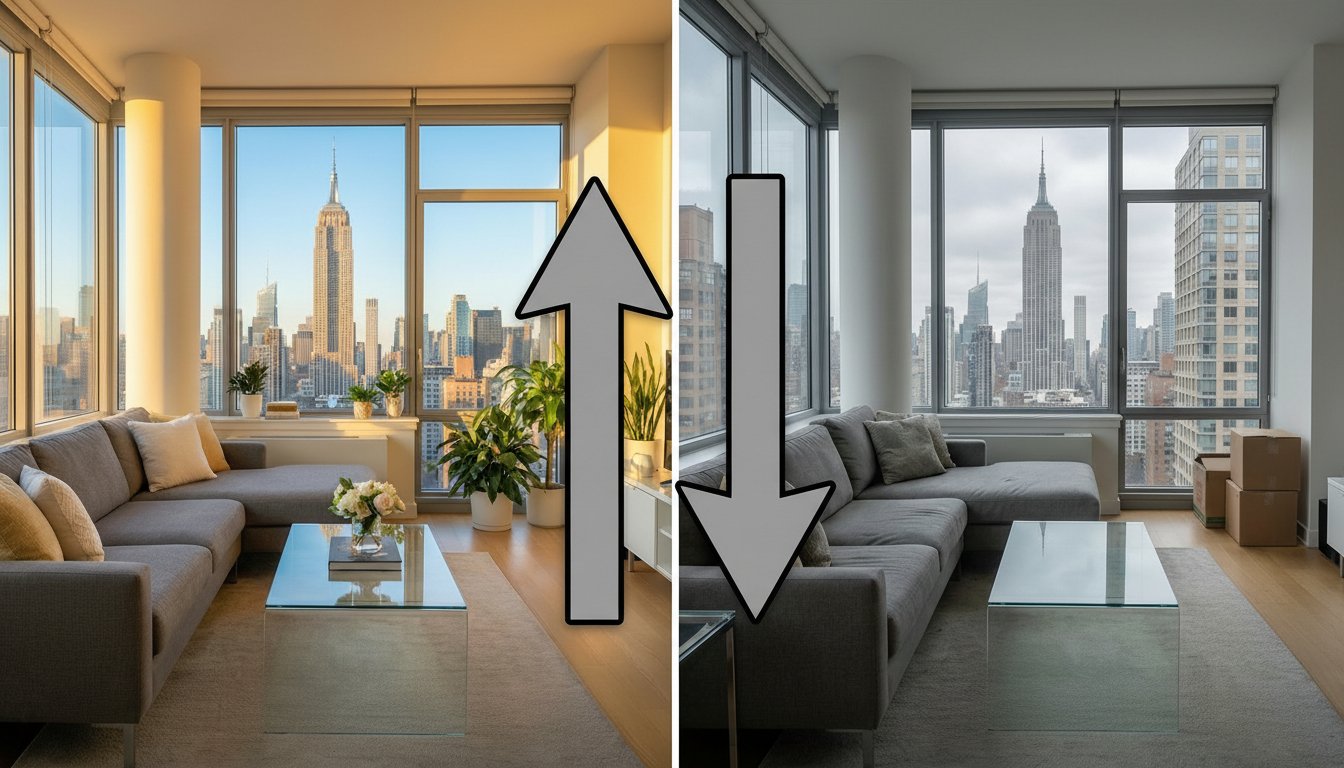How to Negotiate a Home Sale and Save BIG!
Imagine walking into your dream home and walking out a hundred thousand dollars poorer than you need to be. This is a common problem that many buyers face. It's easy to get caught up in the excitement of finding the perfect home and not pay close enough attention to what you're actually offering.
Most buyers overpay because they either don't know what to ask, when to push, or when to walk away. But if you know how to negotiate a sale price like a pro, you won't just own a home, you'll own the leverage that comes with it. In this guide, we'll break down all the best negotiating strategies you need to make a strong offer and walk away feeling like you made a sound investment.
How to Think About Pricing Before Negotiating a Home Sale
Before we discuss the nuances of real estate negotiation, let's start by reframing the way you think about pricing. Most buyers see the number on the listing and assume it reflects the home's true value. But it doesn't.
Would you walk into a store and assume every handbag with a high price tag is worth it? Probably not.
You'd feel the stitching, check the lining, and maybe compare it to a few others. Home buying negotiation works the same way. The asking price doesn't tell you what it's really worth; it's just a marketing tool.
It's a starting point, not the destination. In fact, data from Redfin shows that the typical buyer in the US pays about 2% less than the asking price, indicating that buyers have more leverage in negotiations than they’ve had in years. Once you see that clearly, negotiating a home sale makes much more sense.
How to Negotiate a Real Estate Deal
Now that you know how to look at property negotiation, it helps to have some actionable steps you can take. Here are 6 tips for negotiation that will ensure you get the best deal possible.
1. Reframe the Price + Solution
Remember that the asking price is not the value. It's just the seller's opening argument. What's your counter? Data.
Here's how to acquire the right data for a home negotiation:
- Step 1: Run Comps: Find similar units that sold in the last 6 to 12 months. Think of the same layout and condition, ideally in the same building or around the corner.
- Step 2: Look at the price per square foot: Is the unit priced higher than others like it? By how much?
- Step 3: Factor in the condition: If it needs work, subtract the renovation costs. Don't just guess. Get an estimate or use your agent's pricing guide.
Once you have solid data, you're no longer just guessing. You're making an informed initial offer that actually reflects the value.
Misconception: "The listing price is what it's worth."
The Truth: "It's what the seller hopes it's worth. But you need to know what you think it's worth."

2. Understand the Seller
The best negotiators don't just look at the property. They also look at the seller. So if you need real estate negotiation tips, know who you're working with and what's motivating them. Asking a few simple questions can make you a more effective negotiator.
What's driving the sale?
If the seller is relocating, they probably want speed.
If they have already bought their next home, they may need clarity.
If the price recently dropped, they might be getting nervous.
Here's how you can get the answers:
Have your agent build rapport with the listing agent and ask, "What's most important to the seller?"
Read between the lines: If the unit is vacant, it's costing the seller money. If the listing had gone off the market and come back, they may have had a deal fall through.
Those are pressure points, and pressure points are leverage that enhance your ability to negotiate. Then, when you craft your offer, you can lead with exactly what the seller values most.
Misconception: "It's all about price."
The Truth: "It's about solving the seller's problem."
3. Time Is Leverage
Using time to your advantage is another one of the best price negotiation tactics. If the property's been sitting on the market for 3 or 4 months, that's not just market noise; it's a negotiation opportunity.
According to a report by UrbanDigs, homes for sale in NYC typically see price reductions of 2-2.5% for every 30 days on the market during the first six months. Knowing how long a property has been listed can give buyers valuable leverage, as more time on the market often leads to deeper discounts.
Here's how to use time to your advantage for a successful negotiation:
- Multiple price drops
- Stagnant activity: If there has been no new interest, that seller is likely frustrated and flexible.
That's when you make your move. Submit a thoughtful, fact-based offer that's slightly below where you think the value sits, but make sure to anchor it in logic by:
- Referencing comps
- Highlight the condition
- Show you've done your homework
Don't just throw out a low number; justify it with data. That's what separates a smart buyer from a time-waster.
Misconception: "I'll lose the deal if I don't pay full price."
The Truth: "If it's been sitting, the seller probably needs you more than you need them."

4. Structure Your Offer + Solution
Structuring your offer with a solution is another one of the most powerful real estate negotiation strategies.
Your offer isn't just about the number, it's about how it's built.
Think about your terms:
- Are you flexible on the moving date
- Can you waive contingencies that aren't essential
- Can you shorten your timeline for financing or board approval
Even things like offering a larger deposit or giving the seller some post-closing occupancy can make your offer feel safer and stronger. Ask your agent for negotiation advice and what will make your offer feel safer and stronger.
Misconception: "Cash always wins."
The Truth: "The strongest offer with the least friction usually does."
5. Negotiate During Due Diligence
The contract negotiations for a property don't have to stop once you finalize your offer, they can continue right up to the closing date.
Let's say your offer gets accepted. You start getting excited, and you're ready to move forward. But here's the part that most buyers skip: the due diligence.
This is when you, or your attorney, will review everything behind the walls.
Here's what to look for before you close the deal:
- Building health: Does it have solid reserves? Any lawsuits? Deferred maintenance?
- Hidden costs: Are there upcoming assessments? Is the building about to raise maintenance fees?
- Red flags: Any signs of poor management, financial instability, or repairs that get kicked down the road.
If something unexpected comes up, you can absolutely renegotiate or even walk. According to a HomeLight survey, 42% of pending offers fell through because of issues identified during the inspection, and the NAR estimates that around 6% of contracts are delayed due to appraisal issues.
So don’t be afraid to walk away if something unexpected is revealed. The due diligence period protects you from buying into a bad situation.
Misconception: "Once it's accepted, it's done."
The Truth: "The contract is just the beginning. Smart buyers protect themselves after the offer, too."

6. Know When To Walk + Solution
One of the most important real estate negotiation tips for buyers is knowing when to walk, but with a solution. Sometimes the smartest move is no move at all.
Here's how to know when to walk:
- If the seller won't come down and the value doesn't make sense on paper, walk.
- If your gut is telling you "this feels off,” listen to it.
- If every negotiation turns into drama, ask yourself, "Do I really want to spend years in a home that started with so much stress?
You win with negotiation techniques when you stay aligned with what really matters: your numbers, your timing, and your lifestyle.
Now that you're equipped with all the best real estate negotiation tactics, you're ready to shop with confidence. Although applying these principles in real life is often easier said than done. Luckily, Undivided has your back.


